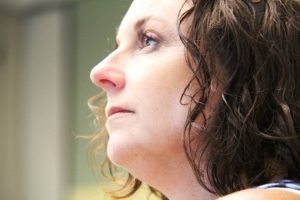A symposium developed by Marine Biology Professor Leslie Cornick has gained the attention of international conferences and led to a book proposal.
“Integrating Marine Mammal Conservation: 21st Century Challenges” was Cornick’s focus as she led a two-hour panel bringing together experts with diverging interests in science, industry, policy and subsistence hunting.
Cornick said she proposed the topic to organizers of the 26th International Congress for Conservation Biology after seeing how competing stakeholder goals can lead to conflict rather than solution-oriented planning.
“I wanted to offer a big-picture view of conservation that includes the human dimension,” she said.
“Interdisciplinary approaches are the best way to conserve ecosystems and the communities they support, both animal and human.”
Organized by the Society for Conservation Biology, the biennial International Congress attracts thousands of attendees from around the world and is the key gathering for conservation professionals and students.
Cornick’s panel, presented July 23 in Baltimore, was among more than 100 symposia, workshops, poster sessions, focus groups and other events held during the four-day meeting. She recruited presenters in areas such as public policy, sustainable fisheries, community and coastal zone development, and food security of Native and aboriginal peoples.
“People have to be part of the conservation equation – it’s not just about the science,” Cornick said. “I want to engage scientists to think outside the Ivory Tower.”
She will present follow-up sessions in December, at the Biennial Conference on Marine Mammal Biology held in Dunedin, New Zealand, and again at the Third International Marine Conservation Congress in Glasgow, Scotland, in August 2014.
APU graduate students and alumni will take part in the New Zealand conference. University of Chicago Press has expressed interest in publishing a training handbook based on symposium presentations, Cornick said.
She believes that taking part in international gatherings is important for her discipline as well as APU:
“Developing symposia, presenting at conferences – these activities model for our students that University faculty do science as well as teach it. Every time APU is associated with important work in our disciplines it’s good for APU.”
A University faculty member since 2004, Cornick investigates physiological constraints on marine mammal foraging and the plasticity of foraging strategies. She directs the University’s Marine Physiological Ecology Lab and the Scientific Marine Mammal Monitoring Program.
APU is accredited by the Northwest Commission on Colleges and Universities and is Alaska’s only four-year, private, baccalaureate liberal arts university. We are committed to personalized instruction incorporating Alaska as our principal classroom.

